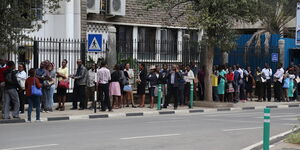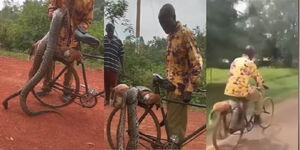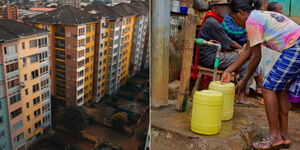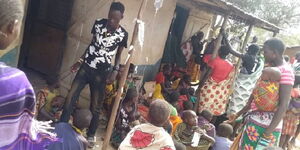Kenya Medical Research Institute (KEMRI) on Friday, April 21, revealed the working mechanics of a digital-based vaccination system currently being used to save many children from diseases.
In collaboration with Japanese Nagasaki University, KEMRI developed a Biometric Immunization System that leverages digital technology to ensure that vaccines are administered in time and efficiently to children under five.
The technology provides measurement and analysis of biological characteristics such as fingerprints, facial features and DNA to maintain important vaccination records of an infant.
"We realised we did not have a way of tracking children, especially, about their vaccination system and history." Dr Nzou Muuo, KEMRI Scientist, stated.
The technology provides for managing a child's vaccination history from birth.
Fingerprint identification is used for newborn babies and voice recognition for their caregivers, with the data stored within a matching system of a designated data bank.
However, the pilot project is being done on children under five, with the government set to roll it out nationwide.
"Vaccination is a crucial aspect of ensuring the health and well-being of children. Vaccines help protect children from serious and potentially life-threatening diseases such as measles, polio, whooping cough, and more.
"Vaccines work by stimulating the body's immune system to create an immune response against specific pathogens, allowing the body to fight off infections," Dr Muuo stated.
It was also noted that parents of newborn babies ought to consent to the new technology two months before birth, and barely hours before delivery.
KEMRI Scientists recommended that children receive a series of vaccines during their early years and boosters later in life to maintain immunity.
At the same time, the World Health Organization (WHO) recommends that all children receive the Diphtheria, tetanus, pertussis (DTaP), Polio, Measles, mumps, and rubella (MMR) vaccines.
Other vaccines include Haemophilus influenzae type b (Hib), Hepatitis B, Pneumococcal conjugate (PCV) and Rotavirus vaccines.
In addition to these vaccines, others may be recommended depending on a child's specific health conditions or region.
WHO noted that it's important for parents to discuss vaccination with their healthcare provider and ensure their children are up to date on all recommended vaccines.












